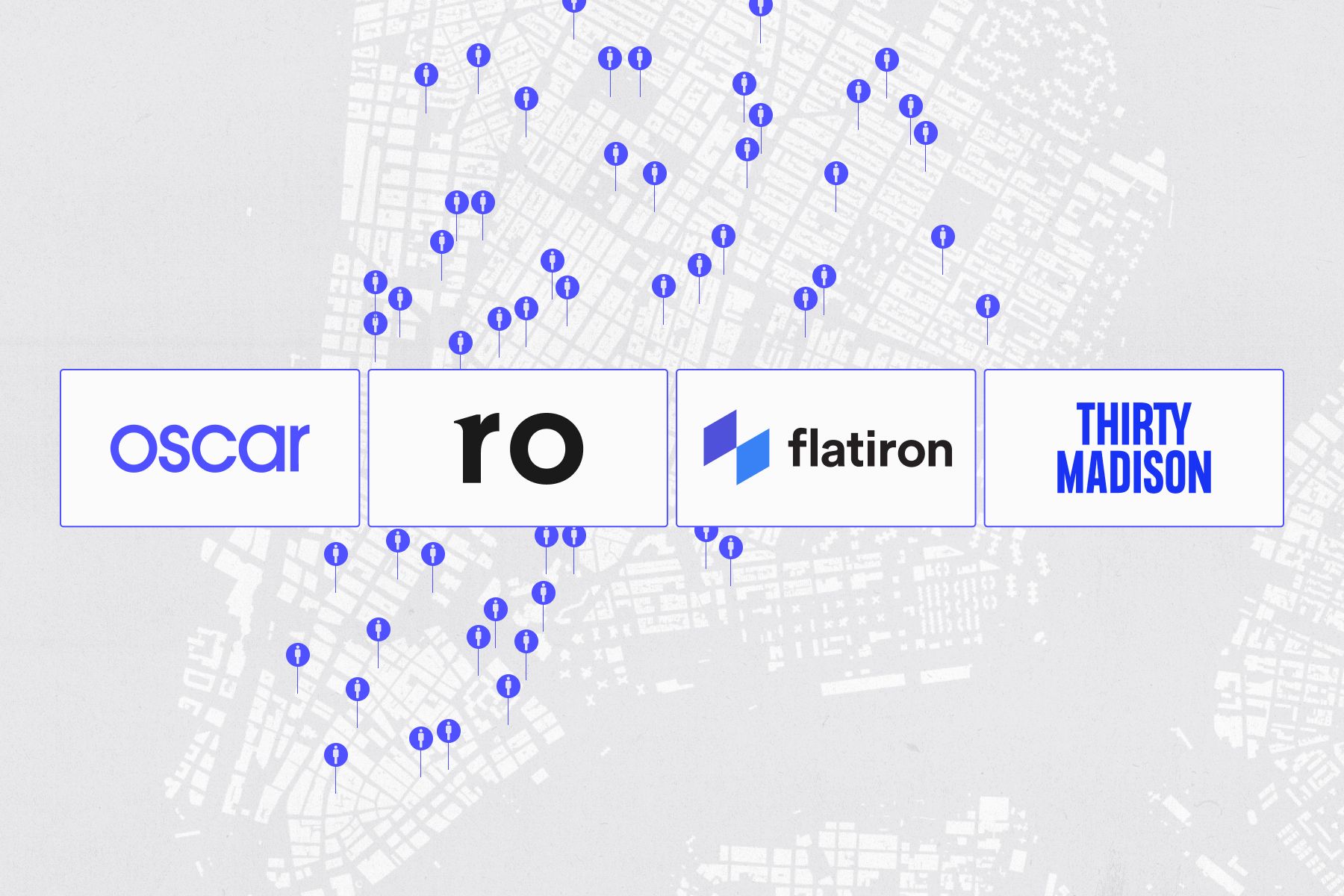All Change: what the New Normal Means for Leadership, Company Culture and the Fabric of our Cities

For the world’s workers, after the crisis phase of coronavirus has passed, there is no going back to ‘normal’. But which of the changes to the workplace are here to stay, and what are their less foreseeable consequences? As offices in many parts of the world begin to reopen, we speak with Adrien Roose of Cowboy, Akshay Kothari of Notion, Cal Henderson at Slack and Job van der Voort of Remote.com about the opportunities and risks – including the implications for urban design, the need for technologies that facilitate collaboration, and the potential for fresh styles of leadership adapted to virtuality.
As countries in many parts of the world ease lockdown restrictions, businesses are beginning to ask themselves what the post-covid workplace will look like, not just in the months but the years to come. Companies that once resisted remote and flexible working have been forced to make it a reality – and in the process, they’ve woken up to all the unnecessary overhead bound up in outdated office structures. Some have gone so far as to allow most of its global workforce to work from home indefinitely.
The fully remote workplace probably won’t be the new normal, but equally there’s no going back to the way things were before. The end result will probably be a hybrid model: the office will become less of a work-hub and more of a watercooler, while much of the labour will be distributed across the satellite offices of people’s homes. The second and third-order consequences will be profound – not least for white-collar employees, for whom the talent pool is eventually going to be globalised and offshored the way it was after the 1980s for blue-collar workers. Just as the ‘agile’ workplace demanded new skills and leadership strategies when it emerged in Silicon Valley, the new hybrid model could catalyse the creation of new management cultures, forms of organisational design, and a reinvention of the very fabric of our towns and cities.
We surveyed 500 workers in the UK about their experience of the lockdown. One of the striking findings was how readily employees had embraced the culture of homeworking. 84% of people saying that they enjoyed it, and 40% of people said they’d spend a larger portion of their week working remotely once the pandemic was over. For 64% of people, the lack of a commute was the number 1 reason for this enthusiasm. That’s not surprising when you consider that the average commute time in the UK is 59 minutes a day, and 80 minutes in cities like London.
So what would this mean for our urban streetscape, if people stopped travelling to the office en masse at regular times each day? ‘We’re now at a crossroads, and the future could take two very different shapes,’ says Adrien Roose, co-founder and CEO of Cowboy, the Brussels-based electric bike company. Over the course of the pandemic, demand for its bikes has doubled.
"Now that our streets are almost empty, it’s become obvious how we’ve misallocated space among pedestrians, cars and bike."
— Adrien Roose, Cowboy
The push towards convenient personal ‘micromobility’ solutions actually predates coronavirus. Citizens have become increasingly aware of the environmental cost of cars (the return of wildlife to our cities and parks, and seeing skies clear of smog and air pollution, has been one of the rare reasons to celebrate during the pandemic). Young people in particular have also flocked back from the suburbs to live in city centres, a lifestyle that tends to involve shorter trips. But the demand for green and affordable private travel is only going to go up after the pandemic, as people appreciate the health risks of public transport and also commute to work more sporadically.
‘Now that our streets are almost empty, it’s become obvious how we’ve misallocated space among pedestrians, cars and bikes,’ says Roose. ‘Cars don’t just contaminate the air, they create noise and space pollution too.’ The worry, he says, is that unless cities build the infrastructure (like bike lanes) that allow people to use micromobility safely, they’re likely to fall back on cars – which could make our streetscape more congested than ever. ‘There’s a huge opportunity to embrace new forms of travels, but urban planners will need to be bold,’ says Roose.
"Because of the loss of ‘ambient information’ that employees acquire simply by being in a physical office, it’s going to become even more important to create virtual space for asynchronous discussions that play the same role as face to face conversations."
— Akshay Kothari, Notion
When employees do ‘clock in’, what are the technologies they’ll need to do their jobs effectively? ‘Even before coronavirus, people were fed up with the number of bits of software they had to use over the course of the work day,’ says Akshay Kothari, Chief Operating Officer of Notion, an intuitive workspace creation tool based in San Francisco, which has seen doubling in demand in the past few months. He notes that in his prior job at LinkedIn, he touched at least 15 different programs while working. The costs of such cognitive ‘switching’ are high, and will be all the more striking when employees don’t have the in-person support of colleagues at an adjacent desk.
‘The pendulum has to swing back to something that’s much more manageable,’ Kothari says. The shift to homeworking could be a catalyst for a new regime of norms and processes, he believes – many of which should reduce friction for workers.
Kothari adds: “Because of the loss of ‘ambient information’ that employees acquire simply by being in a physical office, it’s going to become even more important to create virtual space for asynchronous discussions that play the same role as face to face conversations. The risk is that this information gets stuck in different software silos. If proactive communication was important before Covid-19, it will be doubly important now. Software can help, but it relies on company culture that welcomes more openness, as well as leadership that encourages it.”
Ensuring that information is shared and accessible not only makes collaboration within and between teams more pleasurable and efficient, Kothari says. Crucially, in a distributed environment, it also makes employees feel the company is being more transparent, because the data and record of decisions can be accessed by everyone more easily from everywhere. ‘Notion is purposefully very moldable and versatile, which is particularly crucial given we don’t know what the new workplace will look like yet,’ Kothari says. The need for platforms that bring together multiple work functions is likely to drive growth in new, wider-ranging and more intuitive software.
"Managers need to be honest and vulnerable with their teams, and talk about the stresses they are having."
—Cal Henderson, Slack
Cal Henderson, the CTO and co-founder of office messaging tool Slack, says that his company is conscious of how their practices need to adapt. ‘One thing we’ve seen at Slack is people having shorter, more frequent one-on-ones,’ Henderson notes. ‘Managers need to be honest and vulnerable with their teams, and talk about the stresses they are having.’ Henderson is particularly aware of the loss of the chance, unquantifiable but valuable interactions a physical workspace allows for. ‘I find myself moving from one meeting to the next in ten seconds and one click, rather than with a serendipitous walk down the hall,’ he says. ‘Nothing replaces running into somebody, and we don’t really know yet what that means for us as an organisation.’
Perhaps the toughest but also the most exciting question facing leaders in the post-covid workplace is how to go about getting the best people and maintaining a positive culture, especially when the physical office has taken a back seat. ‘It used to be that talent was evenly distributed, but opportunity was not,’ says Job van der Voort, the CEO and founder of Remote.com. ‘Now, since many of us are working remotely anyway, companies are deciding that there’s no need to try and hire the best person in the neighbourhood, or someone who’s willing to relocate – instead, they can look for the best person on the planet.’
"Remote work in itself is a good forcing function for showing weaknesses in organisations and inefficiencies."
—Job van der Voort, Remote.com
Since 2019, Remote has helped companies to recruit people from anywhere in the world – streamlining their taxes, payroll and compliance processes, so businesses can be confident that their distributed employees are fully integrated. Before starting Remote, van der Voort worked for GitLab – the world’s largest remote-first company, which now employs over 1,200 people in 65 countries without a single office.
‘Remote work in itself is a good forcing function for showing weaknesses in organisations and inefficiencies,’ van der Voort says. ‘The secret is out: in many cases there’s no magic to being close together in space.’ One of Remote’s clients, a large multinational fintech firm with 1,000s of employees, has decided to shift to a corporate model with a much smaller office footprint and fewer desks. He believes that companies who don’t meet employees’ expectations for hybrid and flexible work will be met with resistance and struggle to hire and retain talent.
"The CEOs of tomorrow are going to have to adapt quickly and reimagine the very mechanics of what it means to be a leader."
—Akshay Kothari, Notion
Remote has distilled three main principles that allow remote work to be effective. ‘First, you need to work in a way that makes what you’ve done visible to everyone,’ van der Voort says. ‘Second, everything needs to be documented and available asynchronously. And third, you need to spend a lot of time on non-work related activities – because we’re not physically together most of the time, bonding and conversation with your colleagues is extra vital.’
‘The CEOs of tomorrow are going to have to adapt quickly and reimagine the very mechanics of what it means to be a leader,’ concluded Kothari.
Published — July 20, 2020

